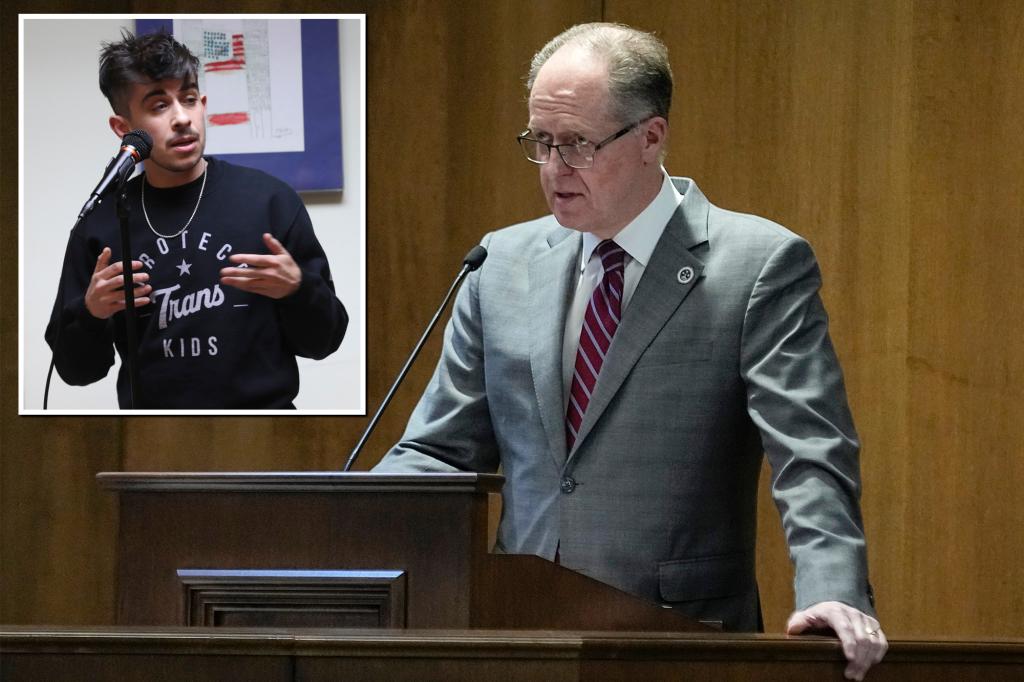Tennessee Senate Majority Leader Jack Johnson (R) expresses cautious optimism regarding the Supreme Court’s upcoming review of the state’s ban on transgender surgeries and hormone treatments for minors, which he co-authored. Johnson believes that the case could serve as a significant benchmark for similar laws across the nation. The Supreme Court will hear oral arguments in United States v. Skrmetti, a case surrounded by a backdrop of varying lower court decisions on similar state-level bans. He emphasizes that the core of the dispute centers on the rights of states to regulate medical procedures concerning minors, a matter he believes carries implications beyond Tennessee.
The legislation, Senate Bill 0001, prohibits healthcare providers from administering medical procedures to minors aimed at aligning with a gender identity inconsistent with their biological sex. While minors themselves cannot be held accountable under the law, their parents can face consequences if they consent to these medical interventions. Additionally, healthcare providers found in violation of the law face steep fines. In response to the law, the Biden Justice Department initiated litigation, achieving a preliminary injunction against the law in July 2023, which was later overturned by the US Court of Appeals for the Sixth Circuit. The case has now ascended to the Supreme Court, with Johnson emphasizing the unproven nature of the science behind such procedures and their potential risks to minors’ long-term health.
Johnson’s advocacy for the bill was sparked by an investigation into practices at Vanderbilt University Medical Center, where he claimed minors were being subjected to irreversible procedures, suggesting that such medical interventions were profit-driven. He acknowledges the mental health challenges children face during puberty but warns against allowing minors to undergo irreversible surgeries. He argues that the state has an inherent obligation to protect children, drawing parallels with existing age restrictions on activities such as tattooing or drinking alcohol, and views his law as a necessary safeguard for vulnerable youth.
Data from the nonprofit Do No Harm reveals a significant number of minors have received gender transition-related treatments in recent years, underscoring the growing prevalence of these procedures. Johnson believes that regardless of the scale of the issue, it is crucial for the state to intervene to safeguard minors. The legal questions raised in this case echo previous rulings where the Supreme Court acknowledged states may have compelling interests in protecting children and preventing possible medical malpractice, drawing upon precedents such as Washington v. Glucksberg.
The Biden Administration’s legal challenge is grounded in the Equal Protection Clause of the Fourteenth Amendment, asserting that the state cannot enforce laws infringing on the rights of its citizens. Notably, Chase Strangio, the first openly transgender attorney to argue before the Supreme Court, will represent the opposition. Johnson’s office will defend the ban in this pivotal case, which has sparked national conversation about transgender treatments for minors and state regulation of medical consent for minors seeking gender-affirming care.
Johnson has faced pushback from established medical associations like the American Psychiatric Association and the American Medical Association, which largely support such treatments for youth, highlighting the divide between political and medical perspectives on the issue. While some organizations have attempted to advocate for their stances, a faction of healthcare professionals, such as those from the American College of Pediatricians, have presented their concerns about the existing protocols in practice. Johnson notes that Tennessee’s legislation does provide an exception for minors with congenital defects or chromosomal anomalies, indicating some level of recognition for medical discretion in specific circumstances.
In the wider context, at least 24 states have enacted legislation restricting transgender treatments for minors, reflecting a growing trend in state-level policies in response to the ongoing national debate over transgender rights and minors. With a similar ban recently upheld in Missouri and the Supreme Court gearing up to provide its ruling, the landscape of healthcare for transgender minors in the United States is poised for significant changes based on the outcomes of this legal battle. Johnson remains optimistic about the fate of Tennessee’s law, believing it could set a precedent for other states grappling with similar issues surrounding minors and gender-affirming medical procedures.











